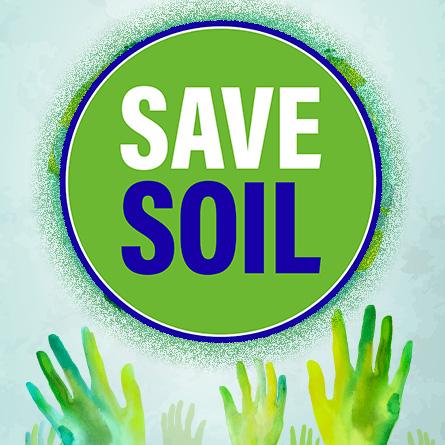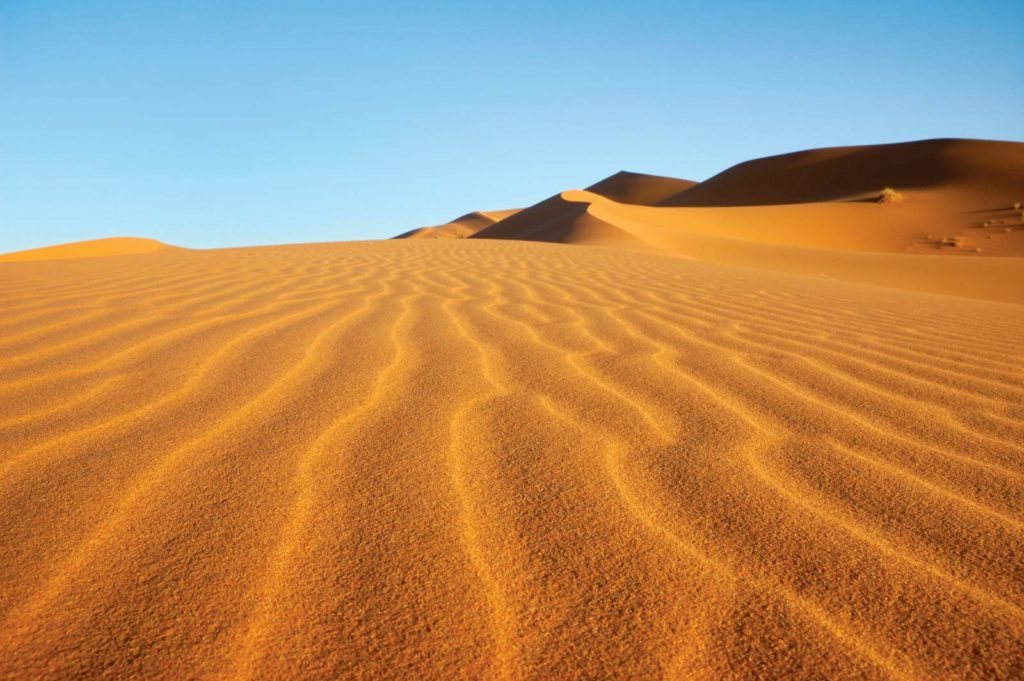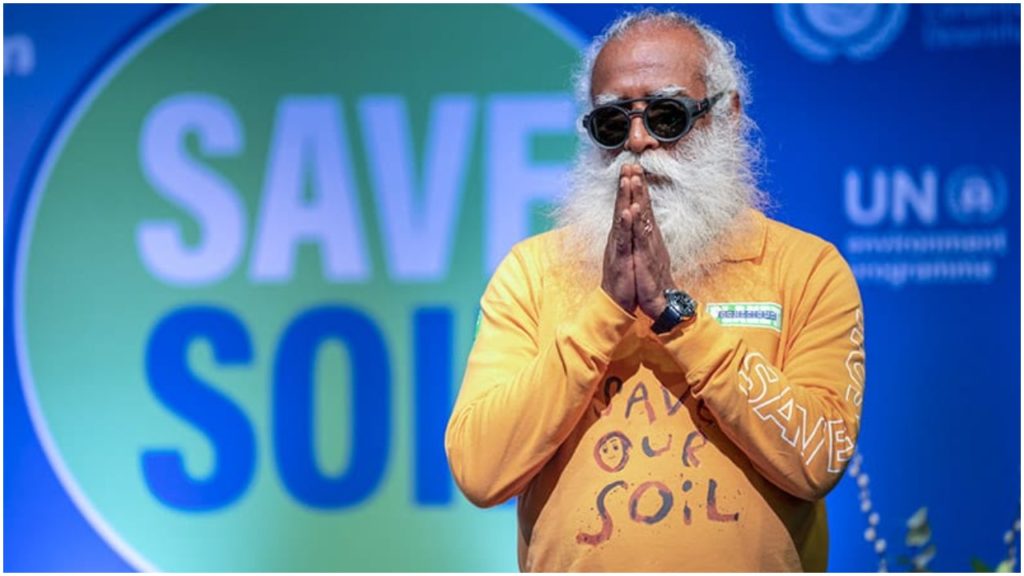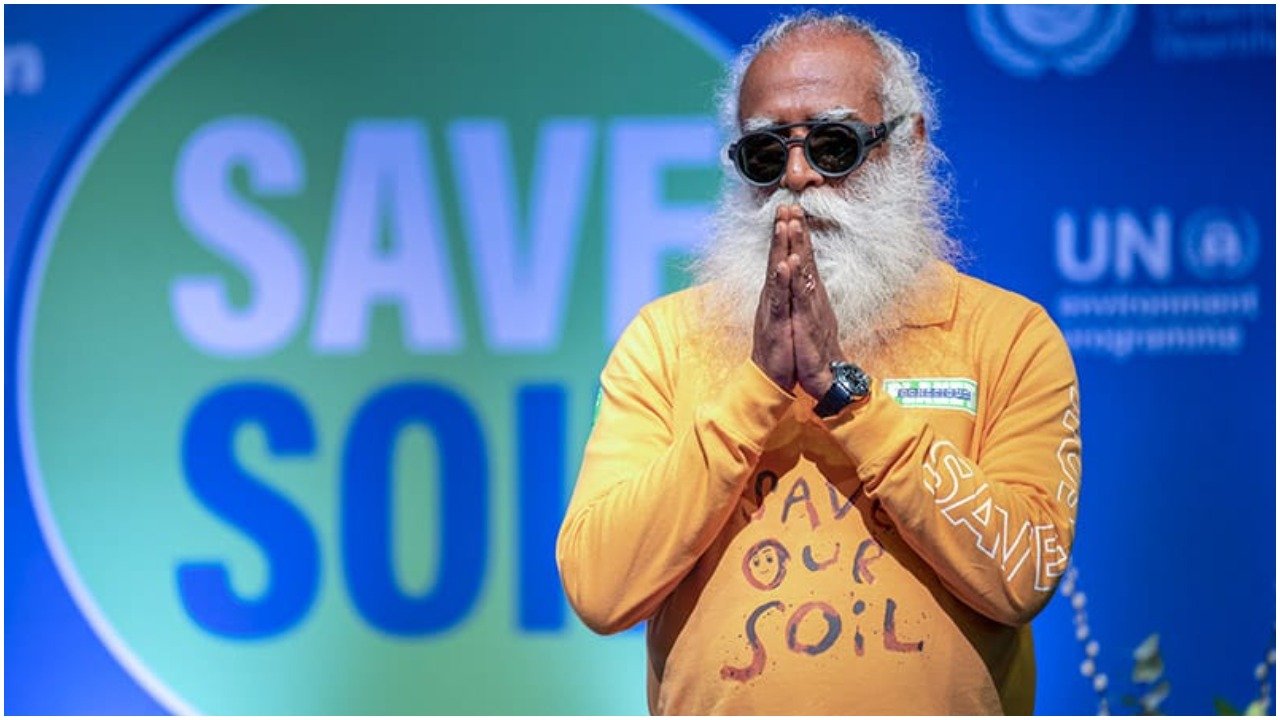Sadguru’s Important message “Save The Soil”
Save The Soil an Important Message for Sadhguru

Save The Soil is an Important Message for Sadhguru Who At the time of writing this the age of 65 is making an epic motorcycle journey around the world to raise awareness and ultimately save the soil and the planet that we live on Save The Soil
We have heard about the importance of saving water, but we rarely hear about saving soil. The soil is the foundation of all life. If it becomes unhealthy, so will our food. The soil is also a living organism that needs to be fed and cared for in order for it to produce healthy foods for us. It also contains a lot of biodiversity, which is necessary for a healthy ecosystem.
What you may not know is that the soil is already rapidly degrading this is already happening in a big way and the nutrient value now from just 50 years ago is severely lower than it was then.
The soil is the most important part of a plant’s life. It provides the nutrients for them to grow and produce food. If we do not take care of it, then it will be hard for us to have enough food and nutrition for everyone in the future.
Luckily Sadhguru has a solution that can help save the soil by using biodiversity and organic farming. This will help with soil health, which in turn will provide good nutrition to people all over the world.
With the rate our soil is being destroyed, it is at risk of running out soon. It’s the foundation for our food supply, and yet we’re depleting it with our current agricultural practices.
In truth, today’s fruits and vegetables have 90% fewer nutrients than they did a few decades ago, which means they are not as healthy. The quality of today’s fruits and vegetables has been compromised in the production of it. ‘s quantity.
We need to start diversifying the crops we grow in order to help prevent soil depletion and maintain the nutritional quality of our food.
We need to eat more plants that are not typical produce, but instead fruits, vegetables, and grains that are typically used for animal feed. These other crops will allow us a better chance at maintaining productive farmland for as long as we need them to.
The world is facing a severe crisis of nutritional deficiencies. The root cause of this is the degradation of soil health and biodiversity. which has created a food crisis with no end in sight.
This is primarily the result of industrial farming practices and the globalization of markets. The most pressing problem today is that we have too much food, and not enough people to eat it. This isn’t because there are more hungry people than there are resources available – this is because of our current economic model.

In India, Sadhguru has been working to save the soil by planting trees and other vegetation that have an impact on the environment. This will help increase biodiversity, which in turn will lead to a healthier planet.
We need to have a sustainable food system. One of the ways of doing this is by saving the soil. We should be aware of the different ways in which soil is being depleted and take appropriate measures to save it.
Soil is a very important part of our ecosystem. It regulates water flow, provides nutrition to plants and animals, helps in bio-diversity, and contributes to climate change mitigation.
World leaders are increasingly recognizing that we need to save our soils for future generations. Sadhguru has been talking about this for years now, urging people not to waste water or soil resources and instead use them wisely so that we can maintain a healthy ecosystem for future generations

The soil is the basis of life and it is important to take care of it. Organic matter, such as manure, leaves, and food scraps can help with this. The organic matter will hold up to 90% of its weight in water and release it slowly over time. This is a big help in drought-prone areas because the water will stay in the soil for much longer periods of time.
Organic matter can be used to increase the biodiversity in an area, improve the quality of soil, and even save our planet from climate change. The process of breaking down organic material into the soil is called decomposition.
The soil is the most important element of life. It is not just the ground beneath our feet, it is also a living organism. We need to save it from becoming extinct.
Soil health has been an important topic for many years now. The world has been trying to understand the importance of soil and its relation to nutrition, biodiversity, and climate change.
Sadhguru Jaggi Vasudev says that if we don’t save the soil, we will be left with nothing but desert on earth in the future.

Scientists have researched that there are about 27,000 different kinds of animals and plants that are becoming extinct every year because of loss of habitat. and climate change. If this trend continues, by the year 2050, more than 80% of all species will have died off.
The crisis has reached a point where 80% of the insect biomass has disappeared.
There is a widespread crisis occurring in the world. The population of insects, which are important for the ecosystem and contribute to the decomposition of organic wastes, has been decreasing rapidly.
Experts have discovered that approximately 80% of insect biomass has disappeared in just 30 years. . Some of the causes that have been proposed for this phenomenon include the overexploitation of natural resources and climate change.
The loss of biodiversity is preventing the soil from regenerating. The world’s soil has been depleted of its natural fertility due to the loss of biodiversity. This lack of biodiversity causes the soil to become unable to regenerate and produce food for the human population. Increasing biodiversity in areas will prevent this from happening.
The effects of biodiversity on the environment have a significant impact on the environment. There is significant evidence that diverse ecosystems are able to sustain more biological diversity than uniform ecosystems. In some cases, this may be because certain species have co-evolved together and maintained mutually beneficial relationships over time.
Dirt is important because it stores 3x the amount of carbon that all plants do. Even more, dirt has twice as much as the atmosphere to store. This means that soil is crucial for carbon sequestration. There is carbon in the soil due to the decomposition of organic matter and its presence can be measured chemically as carbon dioxide. or carbon through a process called lab incubation.
The soil is an important element of the earth’s ecosystems, it holds water and nutrients for plants, supports many decomposers like bacteria and fungi that are important for food production, and recycles elements like carbon back into the atmosphere. In its natural state, the soil is constantly degrading.
If we don’t revitalize our soils, they could release as much as 850 billion tonnes of carbon dioxide into the atmosphere. This is more than all of humanity’s emissions in the last 30 years combined. There is a “carbon budget”, which sets the amount of CO2 that can be emitted over a 100-year period.
If we hit our carbon budget, there will be irreparable harm to life on Earth. The world’s soils are not just one resource, they are actually several resources:

Thousands of farmers are committing suicide due to ecosystem depletions. The soil of their farms is becoming increasingly less fertile. and their animals are dying.“A number of farmers in the country have committed suicide following the depletion of soil fertility caused by excessive use of chemical fertilizers,” reports The Wire. “The increase in industrialization and urbanization has led to a rapid depletion of soil fertility,
Over the past century, the global population has exploded from 1.6 billion to 7 billion, and with this increase, the demand for food has shot up. To keep up with this demand, farming methods have had to change. In order to produce enough food for everyone, agriculture began using chemical fertilizers and pesticides to make plants grow quicker and bigger.
A recent study showed that 74% of the poor live in areas that are affected by land degradation globally. , meaning that these people are particularly at risk of food supply insecurity. The study also revealed a correlation between land degradation and the standard of living. The more degraded land is, the harder it is for families to grow crops, earn income, or develop their economies.
World population and food production will continue to rise. Without sustainable management, soil resources will become extinct, costing the world US$ 10.6 trillion every year as a result of lower crop yields. .”The food, fiber, and fuel resources must be shared equitably between people and nature.”
Population growth, water scarcity, and food scarcity are very problematic. There’s a high chance that more than 1 billion people will leave their current region or country by 2050.
So food scarcity is a pressing issue for 150 million people.2. Resources are limited, and more people means a bigger demand for resources. Farming land is rapidly disappearing due to population growth, urbanization, and climate change, which means that agriculture needs to be more efficient.3. The industry will also have to adapt to the changing environment in order to survive
Land issues are often cited as playing a major role in war conflicts across Africa. It is estimated that 90% of the most (serious) conflicts since 1990 were fueled by land-related issues. There is a general consensus among the international community that land issues play a major role in many African conflicts.
Conflicts involving the Derg (military junta ruling Ethiopia from 1974 to 1991), for example, land seizures were often executed through violent means, including episodes of extrajudicial punishment and military reprisals against civilians.
Food prices have been on the rise for the past decade. This increase has coincided with a number of socio-political events, such as Brexit, the Arab Spring, and riots in South Africa. Historically, high food prices have been linked to dissatisfaction with government policies.
In 2011 and 2012, high food prices were seen in North African countries with governments perceived to be corrupt. Food prices have been at a steady increase since 1970. This has also occurred during times of political unrest. For example, 2002 saw high food prices due to the Yom Kippur War and the Gulf War in 1990.
There are a few ways we can help improve soil quality, but most of us aren’t even aware that this problem exists. For instance, it’s important to save and plant trees as they help retain water and nitrogen as well as break down toxic carbon dioxide. We also need to avoid using toxic chemicals that then leach into groundwater and rivers; pesticides should also be used with caution.
The way we farm is also helping to damage the quality of the soil. Industrial farming, with its heavy reliance on manufactured chemical fertilizers and pesticides, has led to the widespread depletion of soil nutrients. This is a major cause of soil erosion and degradation as well as water pollution from chemicals that leach into groundwater sources. The changes in climate also affect how

Throwing fresh food down the garbage disposal is not an environmentally friendly thing. For example, the degradation of soil has caused many major ecological crises and addressing that pain point can often help the environment in many other ways. It’s a complete fallacy to think that we can solve any one part of our environment without at least referencing the other parts.
You might have a few quick and easy “fixes”, but none of them will be comprehensive until we realize that life is interconnected in all ways. all of which are happening simultaneously. In many ways, the soil is the underlying platform upon which life springs forth. If we fix soil, we have the best chance of fixing the whole. ecosystem. If we make it easier for people to find “green” alternatives, then they will use them.
For example, a lot of people who use eco-friendly cleaners would likely switch to environmentally friendly cleaning methods if the ingredients were more easily accessible and less expensive.
Let’s help Sadhguru to help ourselves and make sure our future selves don’t have this problem SAVE THE SOIL! <<<<Click
Lucid Dreaming


